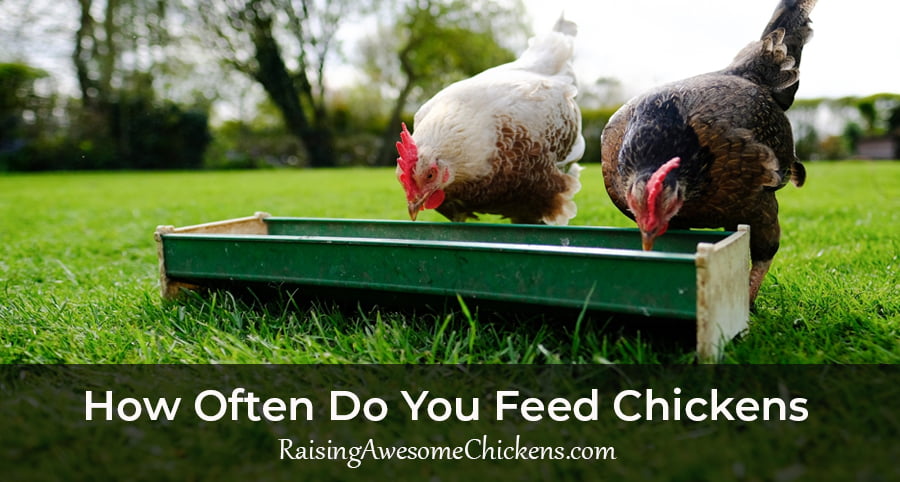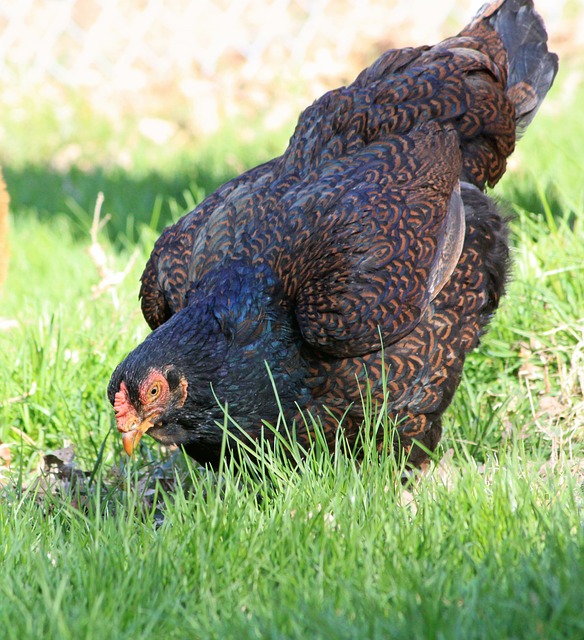Last Updated on February 23, 2024 by AwesomeChickens
Proper nutrition is the foundation of a healthy and productive flock of chickens. Whether you’re raising chickens for fresh eggs, meat, or companionship, understanding their dietary needs is essential. This comprehensive guide will explore the essentials of chicken feed and nutrition as well as provide practical tips for a balanced diet to keep your hens happy, healthy, and thriving.
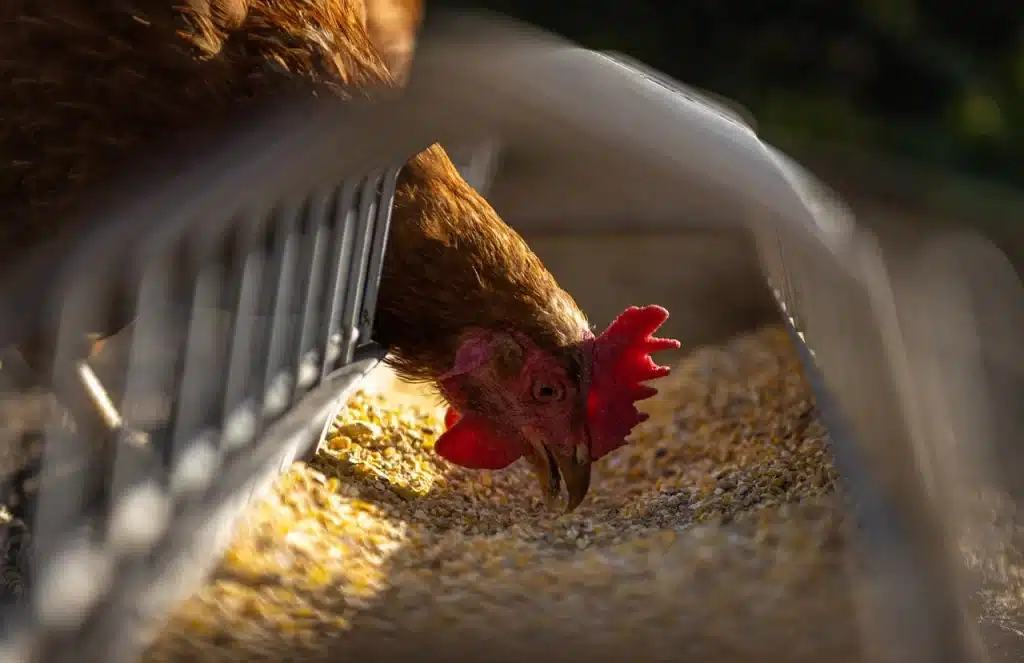
Table of Contents
Understanding Chicken Nutrition
Like all living creatures, chickens require a combination of essential nutrients to grow, produce eggs, and maintain overall health. These vital nutrients can be categorized into six main groups:
- Proteins: Proteins are the building blocks of life. They are crucial for muscle development, feather growth, and egg production. A lack of protein can lead to poor growth and reduced egg production.
- Carbohydrates: Carbohydrates provide energy to chickens. Grains like corn, wheat, and oats are excellent sources of carbohydrates. A balanced diet should include appropriate carbohydrates to fuel your chickens’ activities.
- Fats: Fats are another energy source and are necessary for the absorption of fat-soluble vitamins. Including fats like vegetable oil or seeds in their diet is essential for a well-rounded nutrition plan.
- Vitamins: Vitamins play various roles in a chicken’s health. Vitamin A, for example, supports vision, while vitamin D is essential for calcium absorption. A deficiency in vitamins can lead to various health issues.
- Minerals: Minerals, such as calcium and phosphorus, are vital for bone health, eggshell formation, and other bodily functions. Providing the right balance of minerals is essential for a healthy flock.
- Water: Water is often overlooked as a nutrient, but it is perhaps the most critical. Chickens need constant access to fresh water for digestion, temperature regulation, and overall health.
Types of Chicken Feed
To meet these nutritional needs, various types of chicken feed are available:
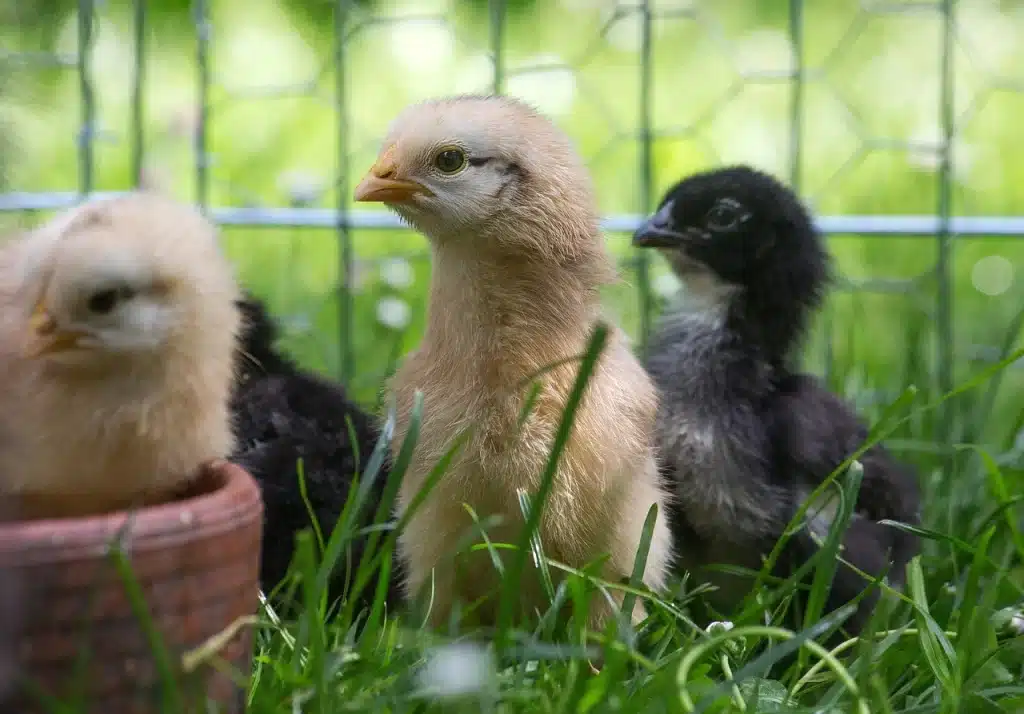
Starter Feed: For newly hatched chicks, starter feed contains high protein levels and essential nutrients to promote healthy growth during the first few weeks.
- Protein: Approximately 20-24%
- Essential nutrients include vitamins (such as vitamin A, D, and E) and minerals (such as calcium and phosphorus) crucial for healthy growth and development in newly hatched chicks.
Grower Feed: After the initial stage, chickens transition to grower feed with slightly lower protein content. It helps them continue growing and developing without the excess protein in starter feed.
- Protein: Approximately 16-20%
- Essential nutrients: A balanced mix of vitamins, minerals, and amino acids supports continued growth and development in adolescent chickens. The slightly lower protein content compared to starter feed helps prevent excessive growth.
Layer Feed: Layer feed is formulated for laying hens and contains the right balance of nutrients, including calcium, for solid eggshells and consistent egg production.
- Protein: Approximately 16-18%
- Calcium: Approximately 3-4%
- Essential nutrients: Specifically formulated for laying hens, layer feed contains higher calcium levels to support the production of strong eggshells. It also includes vitamins and minerals necessary for overall health and egg production.
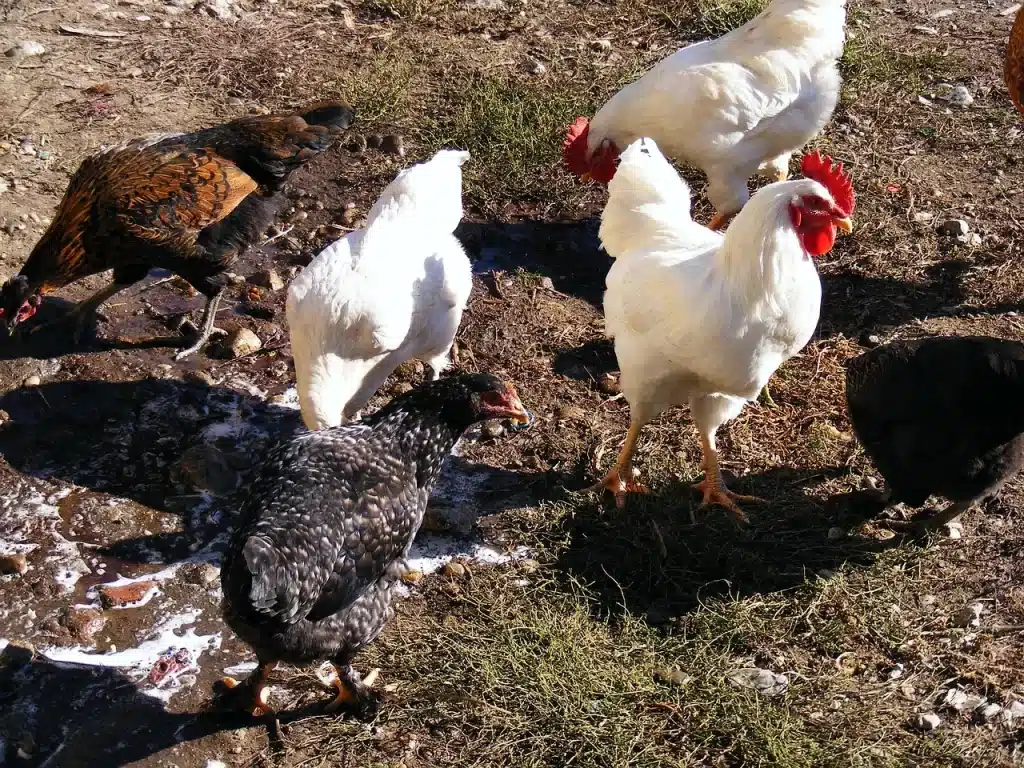
Scratch Grains: Scratch grains are a treat rather than a complete diet. They are a mixture of grains like corn, wheat, and barley and should be given in moderation.
- Some chicken keepers provide supplements like oyster shells (for calcium) or grit (for digestion) to ensure their flock receives all necessary nutrients.
- Oyster Shells: Provide calcium to support eggshell formation.
- Grit: Aids in digestion by helping chickens grind food in their gizzards.
- Essential nutrients: These supplements ensure that chickens receive all necessary nutrients, especially calcium for laying hens, to maintain optimal health and productivity.
Tips for Providing a Balanced Diet
Here are some practical tips for providing a balanced diet to your flock:
1. Choose the Right Feed
Select the appropriate type of feed for your chickens’ age and purpose (e.g., starter, grower, or layer feed). Make sure the feed is fresh and free from mold or contaminants.
2. Provide Access to Fresh Water
Water is essential for digestion and overall health. Ensure your chickens have continuous access to clean, fresh water. Check waterers regularly to prevent contamination.
3. Offer a Variety of Foods
While formulated feed is the primary source of nutrition, chickens enjoy a diverse diet. Supplement their feed with kitchen scraps, vegetables, and fruits in moderation.
4. Control Treats
Owners should give treats in moderation. Too many treats can lead to imbalanced nutrition and obesity. Healthy treat options include mealworms, vegetables, and small amounts of fruit.
5. Monitor Egg Production
Laying hens require specific nutrients like calcium. Ensure they can access layer feed to support strong eggshells and consistent egg production.
6. Adjust for Free-Range Chickens
If your chickens are free-ranging, they may obtain some nutrients from foraging. Adjust their feed accordingly to avoid overfeeding.
7. Avoid Spoilage
Store feed in a cool, dry place in a rodent-proof container to prevent Spoilage and contamination.
8. Consult a Poultry Nutritionist
Consider consulting a poultry nutritionist to formulate a customized feed plan for larger flocks or specific dietary concerns.
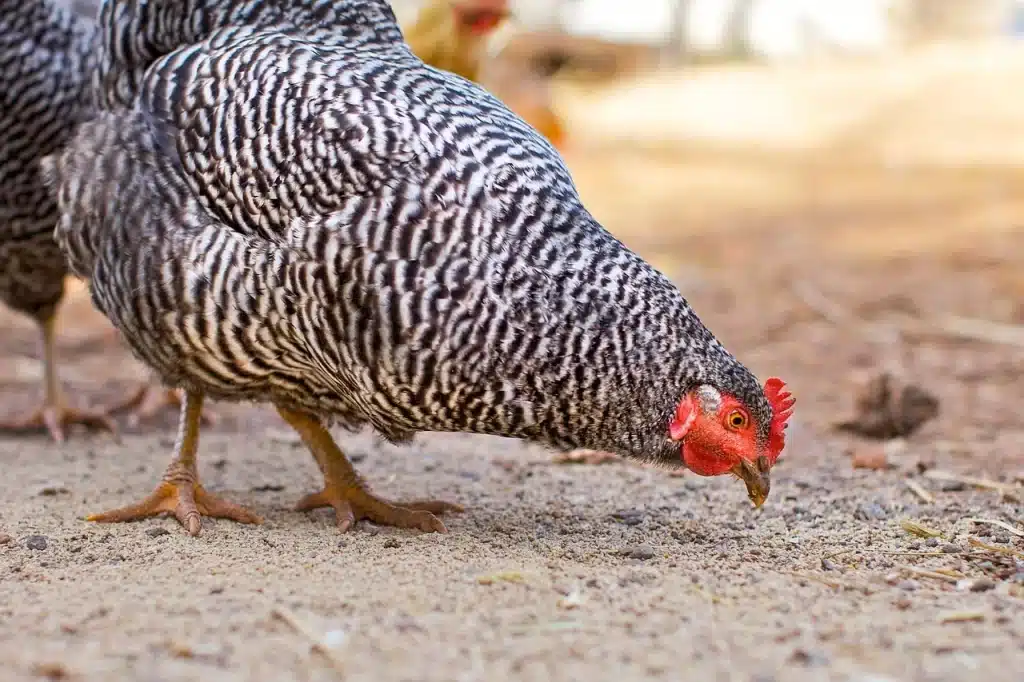
Common Chicken Feed and Nutrition Challenges and Solutions
Understanding and addressing common nutrition challenges is crucial:
1. Calcium Deficiency
If hens have thin or brittle eggshells, provide additional sources of calcium, such as crushed eggshells or oyster shells, in a separate container.
2. Obesity
Obesity can result from overfeeding or excessive treats. Control portions, limit treats, and encourage physical activity.
3. Poor Growth
If chicks exhibit slow growth, ensure they receive appropriate starter feed with sufficient protein.
4. Nutrient Deficiency
Nutrient deficiencies can lead to health issues. Provide a balanced diet and consult a veterinarian if you suspect a deficiency.
Conclusion
A balanced diet is fundamental to the health and productivity of your flock. By understanding the nutritional needs of your chickens and following these chicken feed and nutrition tips, you can ensure your hens enjoy a happy and healthy life, whether they’re busy laying eggs, growing, or simply roaming your backyard. Remember that a well-fed flock is content and productive, and the rewards of fresh eggs and vibrant, thriving chickens are well worth the effort.



